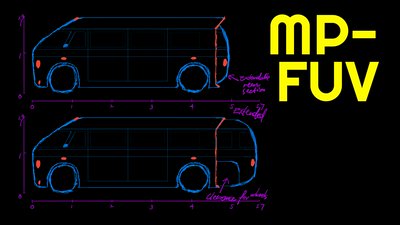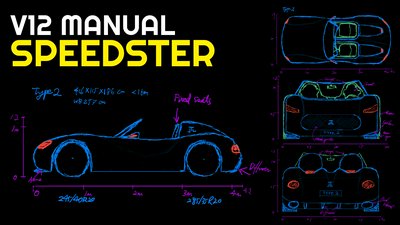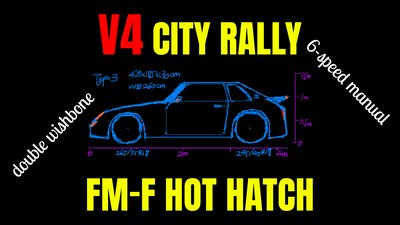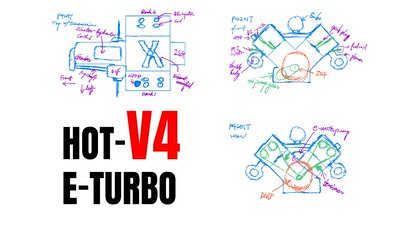techXXX
Nine Iconic Lamborghini Vehicles That You Will Lust After
Ferruccio Lamborghini started his own car company to build luxury grand tourers. However, after the success of the Miura, the brand became known for its mid-engine sports cars. Today, I cover nine of the most iconic and collectible Lamborghinis.
Published by Dr Jiulin Teng on 13 Aug 2024
Keywords: lamborghiniv12
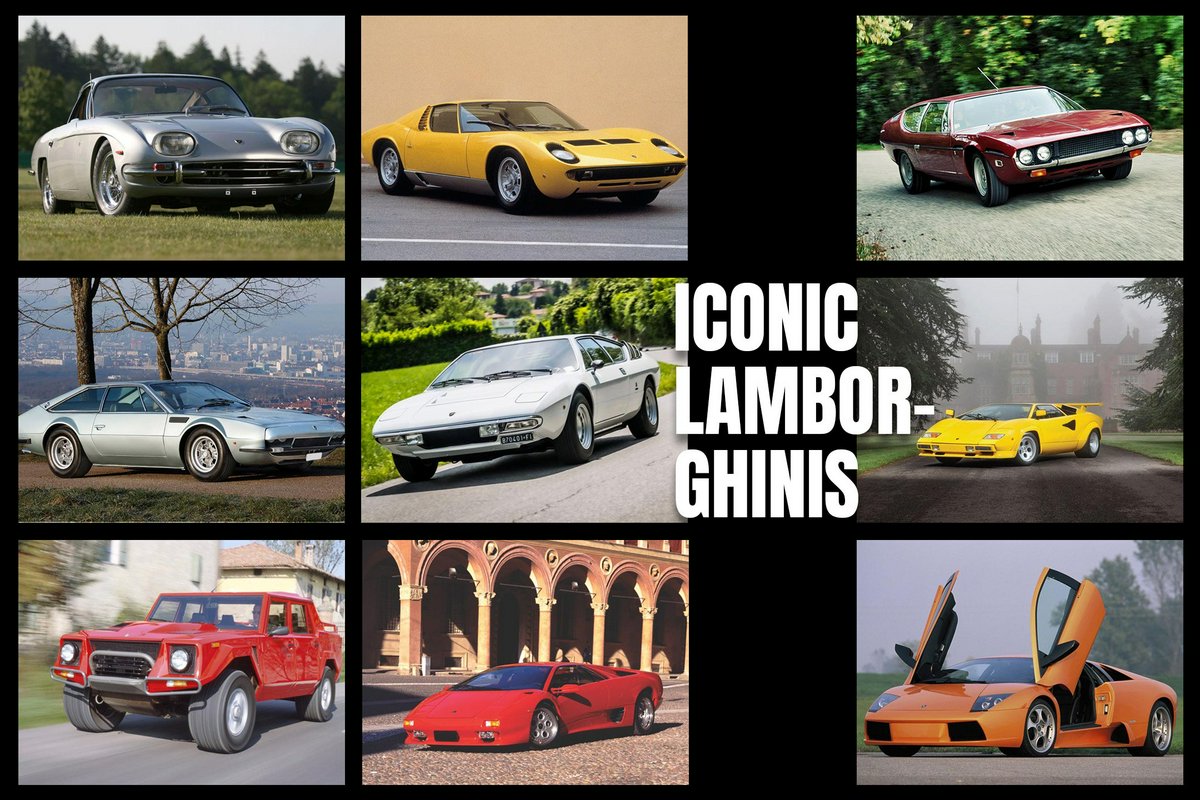
Lamborghini differs from traditional Italian exotic automakers in that it did not participate in racing. Instead, Ferruccio Lamborghini started the company to build luxury grand tourers. His engineers, however, were racing enthusiasts and designed a racing car for the road, the Miura, which started the mid-engine sports car rage. Since then, almost every true Lamborghini has mid-engine layout. Lamborghini is known for its avant-garde styling, with Marcello Gandini as its most influential designer. Today, I cover nine of the most iconic and collectible Lamborghinis.
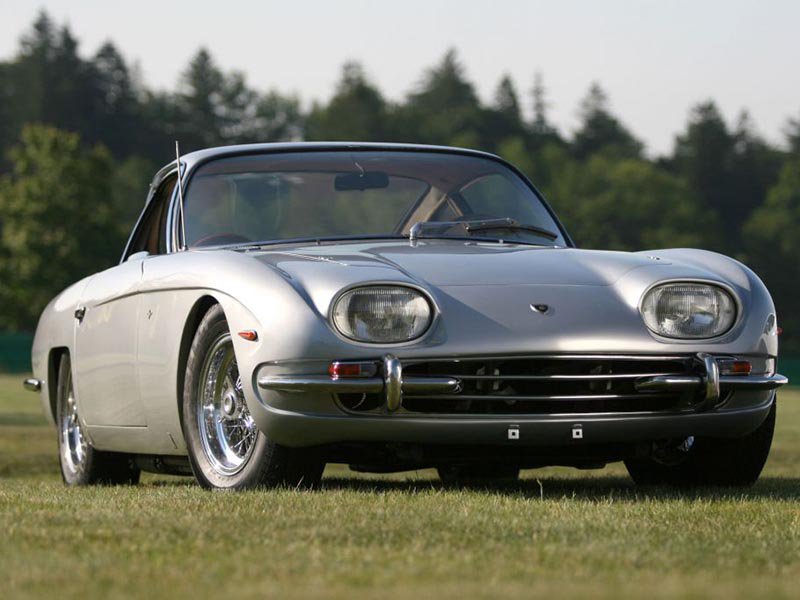
350 GT
- 1964–1966
The 350 GT was Lamborghini’s first production car. It introduced the company’s iconic and long-lasting all-aluminum quad cam V12, a snub to Ferrari’s SOHC design. This engine would stay in service for almost five decades with continual improvements. While the prototype with higher specifications could develop 400hp, the production engine had six side-draft twin-choke Weber carburetors, two valves per cylinder, and wet sump lubrication. The 350 GT also features 5-speed manual transmission, four-wheel independent suspension, and disc brakes all around. The car’s body was designed and built by Carrozzeria Touring using its patented Superleggera construction. It is most notable for its futuristic greenhouse that resembles what spaceships were imagined looking like in the 1960s. The exceptionally high specifications, elegant design, refined luxury, and superb build quality soon established Lamborghini as a serious player in the luxury GT market.
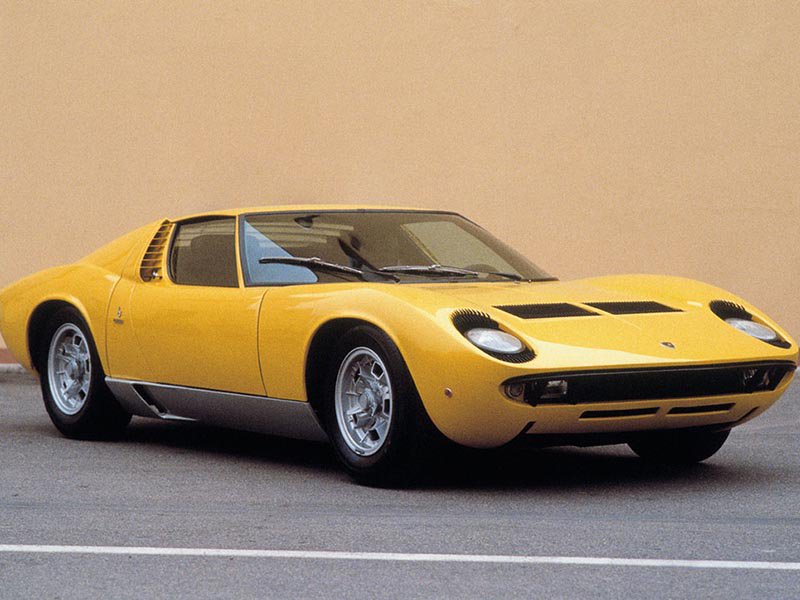
Miura
- 1966–1973
The most iconic and influential car that Lamborghini has ever built is the Miura, often considered the first supercar. It was the first road car with a rear mid-engine two-seat layout. The Miura was powered by a 3.9L version of the Lamborghini V12 with down-draft Weber carburetors, making it the fastest production car in the world. Interestingly, the engine was transversely mounted and share the same casting with its 5-speed manual transaxle. This made the powertrain package exceptionally compact. The Miura was designed by the young Marcello Gandini at Bertone. Its flowing lines and low profile made it an instant classic that still looks futuristic and exciting today as it did over half a century ago. The Miura is widely regarded as one of the most beautiful cars ever made.
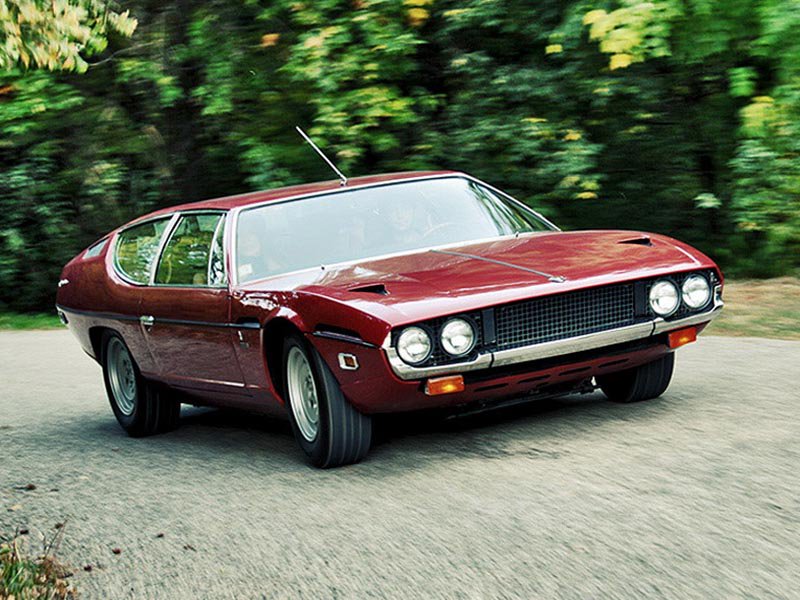
Espada
- 1968–1978
While the 350 GT and its successors were 2+2 coupes, the Espada was Lamborghini’s first and only 4-seat grand tourer designed to seat four adults comfortably over long journeys. It was still powered by a 3.9L version of the Lamborghini V12, though output grew over its production run to 350hp. Five-speed manual transmission was standard, while 3-speed automatic was optional. Today, the Espada is best known for its futuristic, sharp styling combined with a level of practicality unique for a Lamborghini. It was again the work of Marcello Gandini at Bertone.
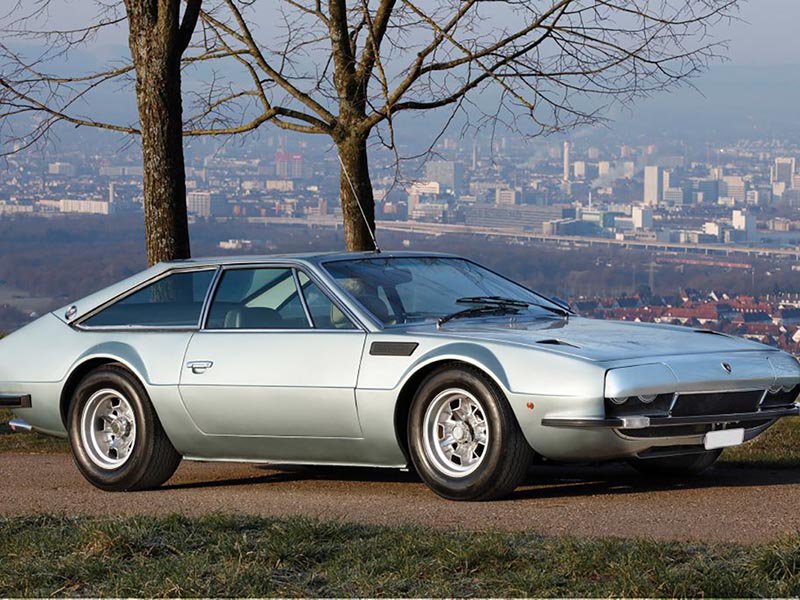
Jarama
- 1970-1976
The Jarama was heavily related to the Espada, though the Jarama was significantly shortened to fit into the 2+2 GT segment. Hence, its chassis and powertrain setup were the same as found in the Espada. Halfway through its production run, a 365hp version, Jarama S was introduced. The Jarama was again designed by Marcello Gandini at Bertone. It was Ferruccio Lamborghini’s favorite model, because it was the perfect balance between the Miura and the Espada. The Jarama was the last grand tourer in Lamborghini history.
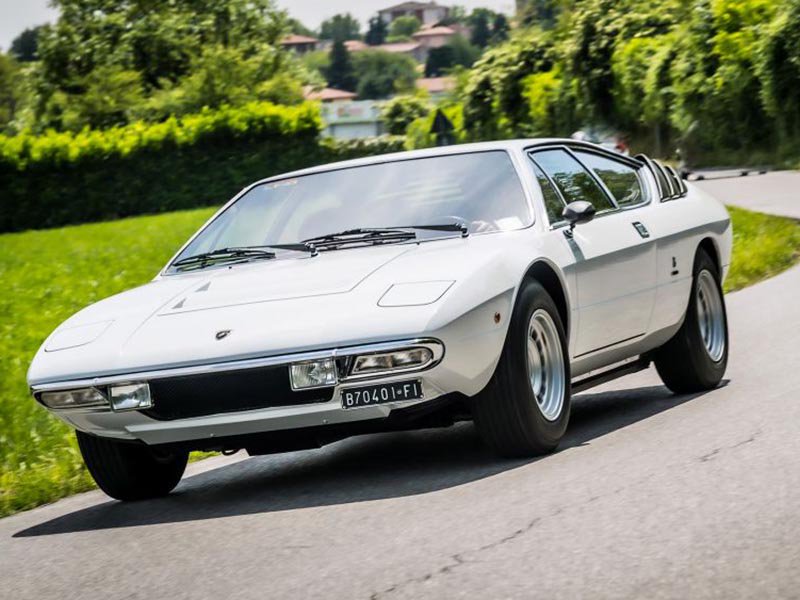
Urraco
- 1972-1979
The Urraco was the first V8-powered Lamborghini, intended to be a more accessible entry-level option to broaden the brand’s market appeal. It was originally powered by a transversely mounted rear mid-engine 2L SOHC V8. This was quickly superseded by a 2.5L SOHC V8 that became DOHC over its production run. In 1974, the displacement grew again to 3L. The Urraco was again designed by Marcello Gandini at Bertone. It was the last car released under Ferruccio Lamborghini’s ownership. As the oil crisis hit the brand particularly hard, Mr Lamborghini sold his company and retired.
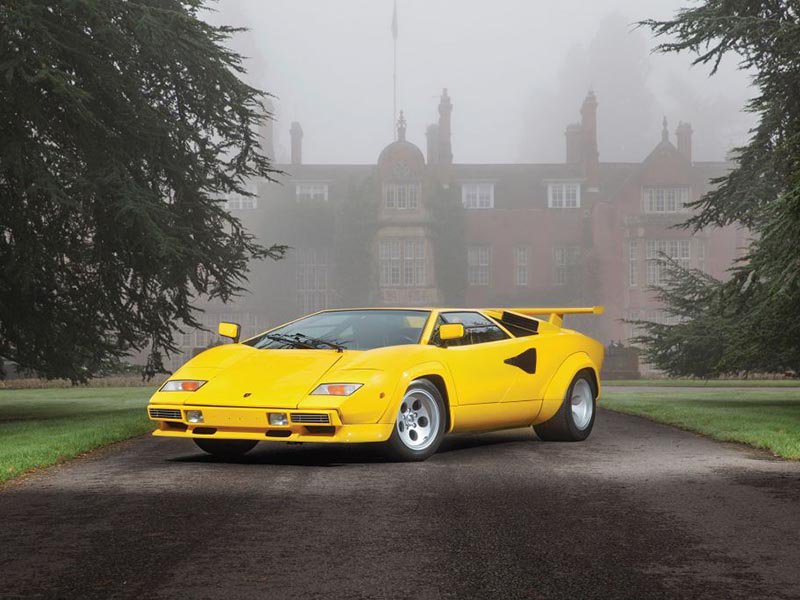
Countach
- 1974–1990
The development of the Countach began under Ferruccio Lamborghini. Unlike the Miura, the Countach had its V12 engine mounted longitudinally, making it the first mid-engine car with its engine mounted this way. The goal was to avoid placing the transmission behind the rear axle. Originally intended to have a 5L engine, the Countach was launched with the same 3.9L V12 from the Miura but with side-draft carburetors as the LP400. In 1982, the 4.8L LP500S was introduced, followed in 1985 by the 5.2L LP5000 Quattrovalvole with 4-valves per cylinder. Again designed by Marcello Gandini at Bertone, the Countach was the first production car to use scissor doors. It is synonymous with 1980s excess and remains one of the most recognizable and celebrated supercars in history.
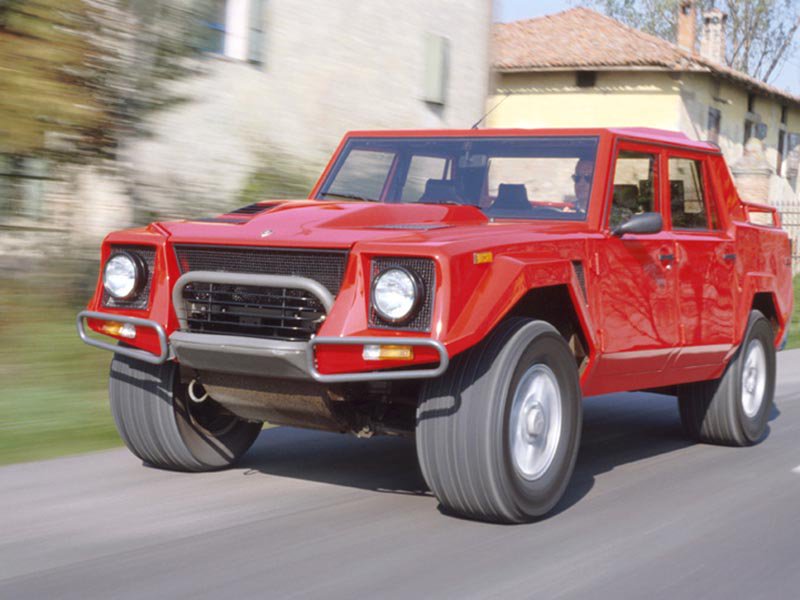
LM002
- 1986–1993
The LM002 was a unique off-road vehicle in Lamborghini history. It was designed to meet US military specifications but with the same 5.2L V12 found in the Countach Quattrovalvole. Ultimately, the US government chose the Hummer. The LM002 featured a tubular steel frame and riveted aluminum body panels and was designed by Giulio Alfieri, the long-time chief engineer of Maserati. The LM002 is frequently stated as an “SUV”, though it is a “sport utility truck” with a pickup truck bed. Unlike today’s “SUVs”, the LM002 was a capable off-roader.
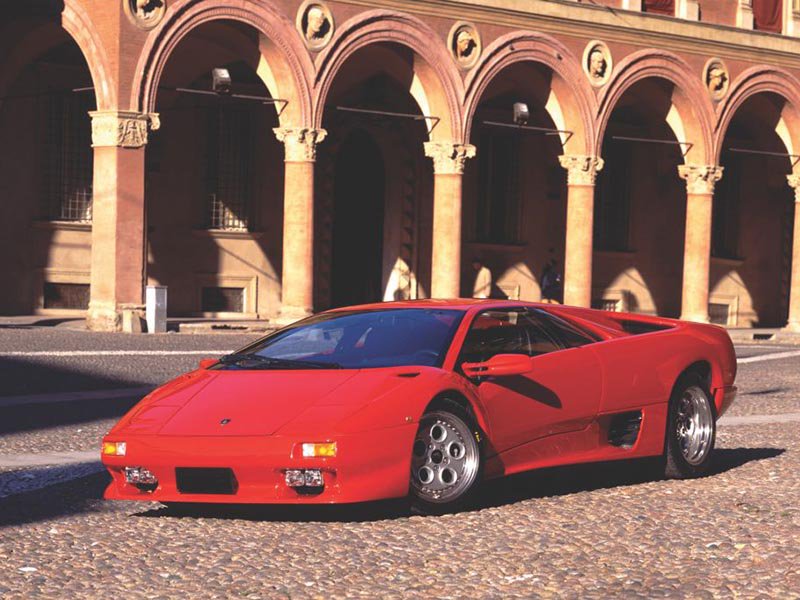
Diablo
- 1990–2001
The Diablo was originally designed by Marcello Gandini, who had already left Bertone. When Chrysler took over Lamborghini in 1987, its team made extensive redesigns. The Diablo bore resemblance to its predecessor, but it is a considerably sleeker car with much cleaner lines. It was the last Lamborghini to feature pop-up headlights, as the facelift saw their removal in 1999. Originally, the Diablo was powered by a 5.7L version of the Lamborghini V12, now with multi-point fuel injection. A newer 6L version was introduced in 1999. The Diablo was also the first Lamborghini to offer optional all-wheel drive, which uses a viscous center differential and was named VT, viscous traction. The Diablo bridged the gap between the old-school, raw supercars of the past and the more refined, high-tech Lamborghinis of today.
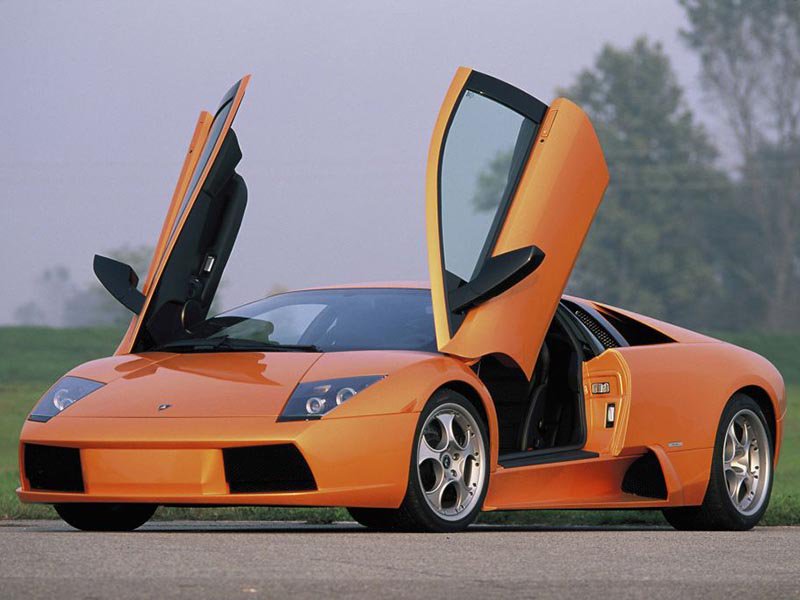
Murciélago
- 2001-2010
The Murciélago was the first Lamborghini released under Audi’s ownership; it was also the last mass-produced Lamborghini to feature the company’s long-lasting V12 that traces its roots to 1963. For the first time, AWD was standard. The Murciélago was also the first Lamborghini to feature 6-speed manual transmission, while an e-gear automated manual was optional. The car was obscenely powerful, with the early 6.2L LP580 developing 580PS and the later 6.5L LP670 developing 670PS in the early 2000s. The Murciélago was the final classic Lamborghini before the Germans diluted the brand.
